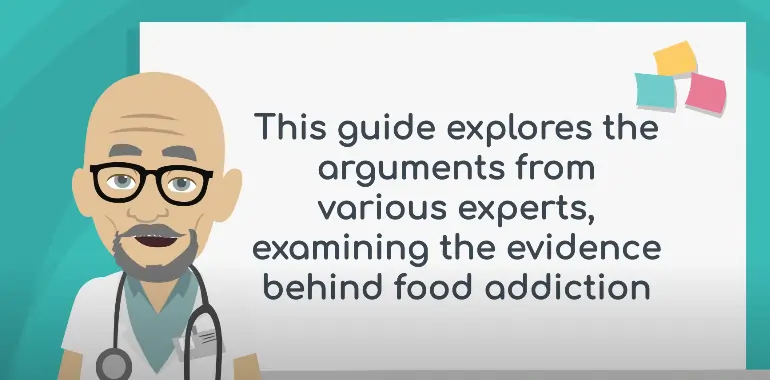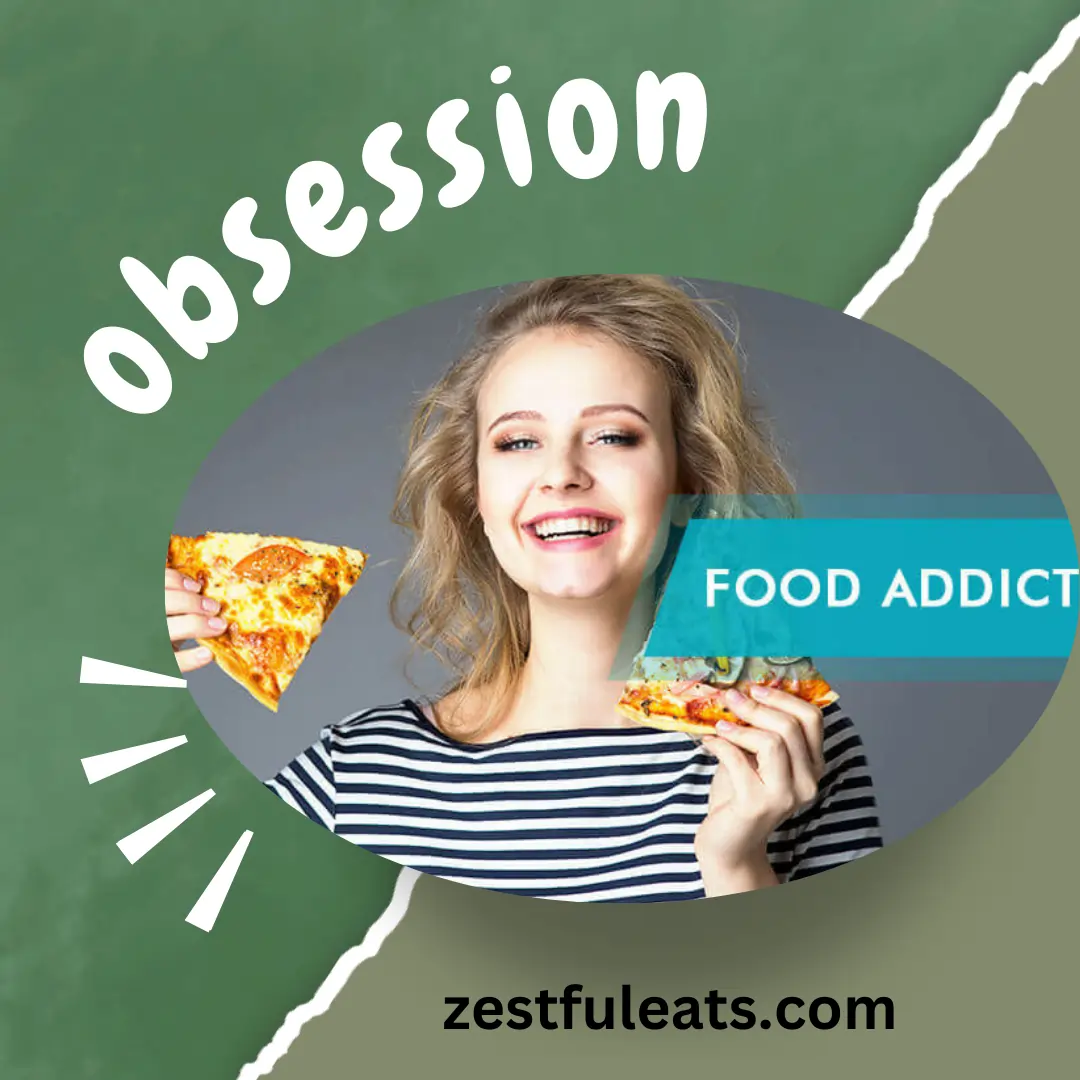Obsession Unveiled: Understanding Your Food Addiction
Being obsessed with food can be draining, often feeling like a relentless mental cycle dominated by thoughts of what, when, and how much to eat. This fixation, coupled with the guilt from not adhering to self-imposed eating rules, can seem insurmountable, particularly in a society that obsesses over every morsel. However, escaping the grip of food obsession is not only feasible but also liberating. Freeing yourself from these consuming thoughts can significantly enhance your quality of life.
This article will explore the indicators of a food obsession, delve into its causes, and offer three practical steps to overcome it, helping you reclaim control of your life.
Obsession Unveiled: Decoding Your Food Addiction
Food obsession is a condition where thoughts about food and eating overpower other aspects of life. This often involves mental challenges such as tracking daily calorie intake, strategizing future meals, and repeatedly contemplating your next meal—even shortly after eating. Emotions fluctuate dramatically, ranging from joy to guilt or shame based on dietary choices. This constant focus on food can significantly disrupt daily living.Obsession Unveiled: Identifying Food Addiction
Food obsession manifests through constant preoccupation with eating, specific foods, and meal planning. Here are signs to recognize this condition:
- Persistent thoughts about certain foods or your next meal, often immediately after eating.
- Daydreaming about eating specific foods.
- Feeling distracted or anxious because of food choices or consumption.
- Engaging in complex negotiations with oneself about food allowances and trade-offs.
- Detailed scheduling of meals and snacks.
- Experiencing strong, relentless cravings.
- Spending extensive time browsing recipes, reading food blogs, or watching culinary shows.
- Saving calories for specific meals or future eating occasions.
- Worrying about food during social events such as vacations or celebrations.
- Planning workouts specifically to offset calorie intake.
- Continuously calculating intake of calories, macronutrients, or dietary points.
- Pre-selecting restaurant meals well in advance of dining out.
- Meticulously reading food labels and stressing over ingredients or nutritional content.
These behaviors highlight an unhealthy fixation on food that can impact mental well-being and daily life. Recognizing these signs is the first step toward addressing food obsession.
Obsession Unveiled: Understanding the Roots of Food Addiction
Frequent preoccupation with food often stems from a deep-seated diet mentality, which can persist even without active dieting. This fixation might be due to ingrained food rules from past diets, or beliefs absorbed from family, friends, colleagues, or social media influences.Recognizing the underlying causes of food obsession is crucial. Here are three primary reasons why you might find yourself overly focused on food:
- Residual Dieting Mindset: Even if you’re not currently on a diet, past dieting practices can leave a lasting impact, causing you to obsess over food choices and consumption.
- Influential Social Beliefs: Rules and ideas about eating, gathered over time from personal connections or media, can shape unhealthy preoccupations with what, when, and how much to eat.
- External Pressure: Continuous exposure to societal standards and expectations about body image and nutrition can intensify food-related anxieties.
Understanding these drivers can empower you to forge a more balanced and healthy relationship with food, moving away from obsessive habits towards nourishment and well-being.Obsession Unveiled: The Impact of Under-Eating on Food Cravings
Consistent thoughts about food often indicate hunger, signaling your body's need for more energy. Ignoring hunger and limiting calories can lead to a heightened focus on food and subsequent overeating as your body reacts to perceived starvation. This cycle can cause ongoing food obsessions and feelings of guilt. The Minnesota Starvation Experiment illustrates this well. In the study, men consumed only 1700 calories daily, leading to intense food obsessions and behaviors that persisted even after normal eating resumed. This shows that not only does hunger intensify food fixation, but extreme calorie restriction can have lasting impacts on your relationship with food.Obsession Unveiled: The Consequences of Restricting Food Types

Restricting specific foods or food groups can make them more appealing, a phenomenon known as the “forbidden fruit phenomenon.” This effect is highlighted in a study where children restricted from eating red M&Ms wanted them more than other colors they could eat freely. Such restrictions can lead to cycles of overeating, as demonstrated by children who consumed more candy when sweets were strictly controlled at home. These findings suggest that limiting access to certain foods can unintentionally intensify cravings and disrupt healthy eating habits.
Obsession Unveiled: Understanding Mental Food Restrictions
Mental restriction occurs when you consume food but subsequently experience guilt and shame, often believing that you shouldn't have eaten because it's unhealthy or could lead to weight gain. This internal conflict can trigger obsessive thoughts about food, a common outcome of prolonged dieting or frequent exposure to negative messages about certain foods. This pattern of thinking isn't a personal failure or a sign of weak willpower; rather, it's rooted in biology and human psychology. Understanding this can help alleviate the burden of guilt associated with eating and can guide you towards a healthier relationship with food.Obsession Unveiled: Three Steps to Overcome Food Addiction
Ending food obsession might seem daunting, but it’s entirely possible by tuning into your body’s needs, reconciling with food, and gradually reintroducing foods you’ve previously restricted. Here are three steps to guide you through this transformative journey:
- Understand Your Body’s Needs: Listen to your body’s hunger and fullness signals to better understand what it needs, rather than following strict diet rules.
- Make Peace with Food: Work towards removing the guilt associated with eating and challenge the notion of ‘good’ versus ‘bad’ foods, fostering a healthier relationship with food.
- Reintroduce Off-Limits Foods: Slowly and intentionally start incorporating foods that were once forbidden into your diet, which can help diminish their undue allure and normalize your eating habits.
By following these steps, you can work towards a more balanced approach to eating that promotes both mental and physical well-being.
Obsession Unveiled: Starting Your Journey with Honoring Hunger
The first step to breaking free from food obsession is tuning into and honoring your body's hunger signals. If you've been restricting your calorie intake for weight loss, adjusting to this approach may seem challenging, but it's crucial to proceed at your own pace. You may find it difficult initially, especially if you're no longer in tune with your natural hunger cues or worry about overeating without strict portion control. To aid this process, consider using tools like the Intuitive Eating Hunger-Fullness Scale, which helps gauge and respect your body's hunger and fullness levels. Additionally, it's important to eat foods that not only nourish you but also delight your taste buds. Including enjoyable foods in your meals can reduce lingering thoughts about food, helping you feel more satisfied and at peace after eating. This balanced approach is key to re-establishing a healthy relationship with food and your body.Obsession Unveiled: Making Peace with Food
To overcome food obsession, it's essential to challenge and change the way you perceive food. If you categorize foods as "good" or "bad" and experience guilt after eating certain items, it's crucial to shift these perceptions. By reframing how you view food, you can eliminate guilt and reduce the control food has over your emotions, which can, in turn, lessen cravings. For many, this is the most challenging step. Begin by closely examining the food rules and beliefs that constrain you. Question the origin of these rules and consider whether they are beneficial in your current life. Methodically work through each belief, dismantling them to foster a healthier and more balanced relationship with food. This process not only liberates you from negative food associations but also empowers you to enjoy a more peaceful and satisfying eating experience.Obsession Unveiled: Introducing Food Habituation
As you adjust to eating adequately and questioning your food rules, the next phase is food habituation. This step involves gradually reintroducing previously restricted foods, which helps diminish their emotional control and the compulsive behaviors they trigger, such as overeating and the ensuing guilt. This normalization process is essential for reducing obsessive food thoughts and affirming that occasional indulgence is okay. Working with a certified intuitive eating counselor can be invaluable during this period for added support. Food habituation is a key component of the “U” in our UNDIET Method, a holistic approach that aids in breaking free from food and body obsessions, allowing you to trust your body’s signals and manage food-related anxiety without guilt.
Obsession Unveiled: Navigating Food Obsession
Feeling overwhelmed by food-related thoughts is often exacerbated by societal and diet culture pressures, not personal shortcomings. The irony is that such obsessions usually stem from dietary restrictions—whether it’s limiting calories, certain food groups, or adhering to strict eating rules. The more you restrict, the more consumed by food thoughts you become. Expanding your dietary variety and practicing self-compassion are crucial steps towards reducing these obsessions. Working with a dietitian skilled in intuitive eating can offer essential support. Additionally, our UNDIET Method provides a comprehensive approach to help you permanently shift away from diet-centric thinking.
FAQS
Why do people become obsessed with food?
Under-eating is a common trigger for food obsession. When you ignore your body’s hunger signals and restrict calories, your brain shifts its focus to food. This can lead to overeating as your body tries to prevent perceived starvation, reinforcing the cycle of obsession along with feelings of guilt and shame.
What is the term for an obsession with food?
Orthorexia nervosa is an eating disorder characterized by an excessive focus on consuming only foods that one considers healthy. This obsession can negatively impact a person’s health and interfere with their daily activities.
What is the term for someone who is obsessed with food?
An epicure is a person who greatly enjoys the sensuous pleasures of fine food and drink, often focusing on the experience of dining with refined taste. This term is synonymous with foodie, gourmet, and gastronome.
What is the term for being sexually attracted to food?
This phenomenon, where someone experiences sexual arousal in relation to food, is described in sources like The Oxford Companion to Sugar and Sweets.
What distinguishes a food lover?
A food lover, or “foodie,” is someone who goes beyond merely enjoying food. They actively seek out new dining experiences, exploring different cuisines and restaurants, often sparing no expense. For a foodie, free time is an opportunity to pursue culinary adventures, always aiming to elevate their appreciation and knowledge of food.
